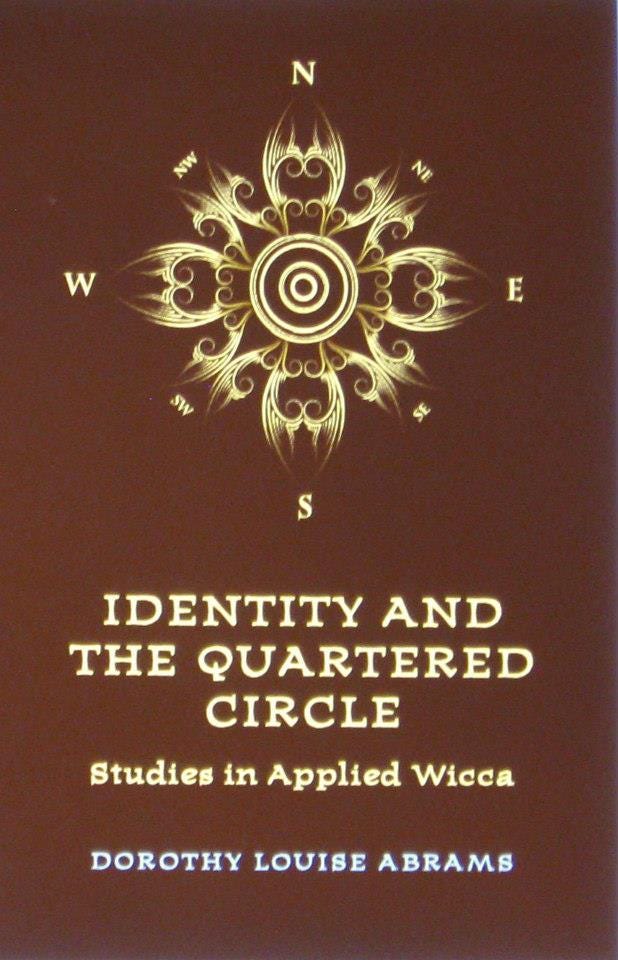This is the 12th year anniversary of Identity and the Quartered Circle. I’m planning to set up a series of independent 10 lessons from the book to off later this summer. This is a good time to buy that book or get it out and review it. To tease you just a bit, I am relating the story of Lamia the Witches Goddess who was my Muse for the book. You’ll notice in my book, I tell her story differently that the classical myths. I work from the premise that the Goddess and their Consorts evolve over time. In addition, their stories are told by the patriarchs, not by the Goddess themselves. Lamia was anxious I correct that record. Here’s the beginning of what she said really happened. At least it did in my Universe. And you should see the rest of the story!
Lamia, Her Story
Lamia was the daughter of Belus, King of Egypt and Sidon and ruler of the Mediterranean before the great human civilizations that rose up afterward: the Egyptian pharaohs, the Phoenicians, the Libyans, the Greeks, Romans and Moors. After being trained in the Temples of Egypt and Babylon where Lamia learned transformative magic and grew into her power, she inherited the land of Libya and ruled as Divine Queen….
As a Goddess Lamia was a maiden of the new moon. The crescent was then her symbol which hung on a sliver chain about her neck, glowing on the dark skin of her breasts which were softly rounded, firm, and uncovered. Her bodice held them fashionably high. Her diaphanous skirts of red and gold flowed out from beneath the bodice to her feet, falling in gentle folds around her legs whose shadows teased the eye as she walked. Her midnight hair was thick and reflective of the flickering tapers in her hall. She wore her hair in thick braids, 13 of them caught together at her nape by a jeweled clasp. Her braids lay against her back, reaching near her waist. Beads and gemstones had been woven in them to catch the light and sparkle. Her arms were long and graceful, adorned with silver bracelets and gold charms. A single gold circlet inlaid with green malachite clasped her upper arm on the left. A similar one beset with lapis was on the right. Small stones of the same gems were suspended on fine gold chains from her ear lobes. The lowest lapis brushed her bare brown shoulders when she turned her head.
Such beauty and power was not to be ignored. Zeus, who ruled the Gods on the north side of the Mediterranean, came to visit unannounced. Lamia kept him waiting in the Great Hall while she perfumed her dark body and dusted it with powder flecked with gold. She knew little of him, save that he was commanding and handsome with broad shoulders, narrow waist and powerful thighs. He paced impatiently, which Lamia watched in secret. Imperiously, he beckoned servants to bring in the gifts he had carried from the North: olives, wine, bear skins, ermine furs, ice, songbirds in gilded cages, banded boxes made of oak. She appraised these treasures from her hiding place and thought him wise. He brought her beauty. She had enough of wealth without his gifts, but beauty—there is never enough of that.
Lamia entered her hall unexpectedly, from a door set cleverly within an arch so it appeared no door at all. Suddenly she stood there in the shadows and sang out his name. “Lord Zeus!”
Her voice sent shivers down his spine as he whirled around to greet her. All who remember that first meeting recall the air snapped and crackled like lightning as the two held each other’s gaze. There was no question of where this would end. He wooed her with all the intensity of an experienced lover. She drew him in with all the seduction of an experienced Priestess who had had many lovers worship at her gates in Babylon. Neither mentioned his wife Hera, not at any time. Lamia opened herself to him and fell deeply in love. Not quite meaning to, but seduced by her arts of ardor, so did Zeus. Where he had intended passion he found enchantment. Where he had intended a conquest, he found devotion….
But Hera grew tired of her husband’s dishonesty with his mistress. Living sometimes with Hera and sometimes with Lamia, he pretended neither knew the other. Hera understood her husband much too well, had no illusions about who he was nor what one might expect from him. One day in dark winter, though winter on the north of Africa is never harsh nor very dark, Hera arrived unannounced…


